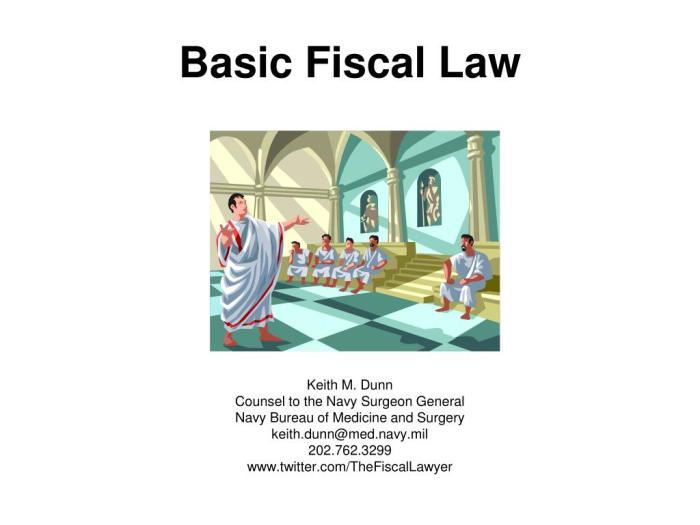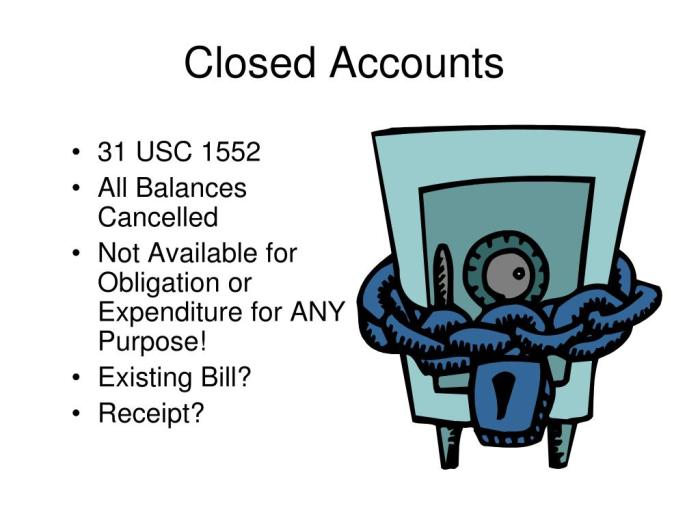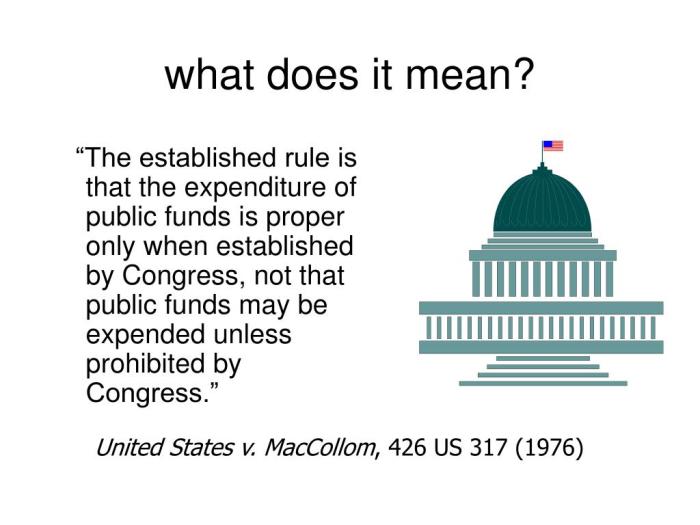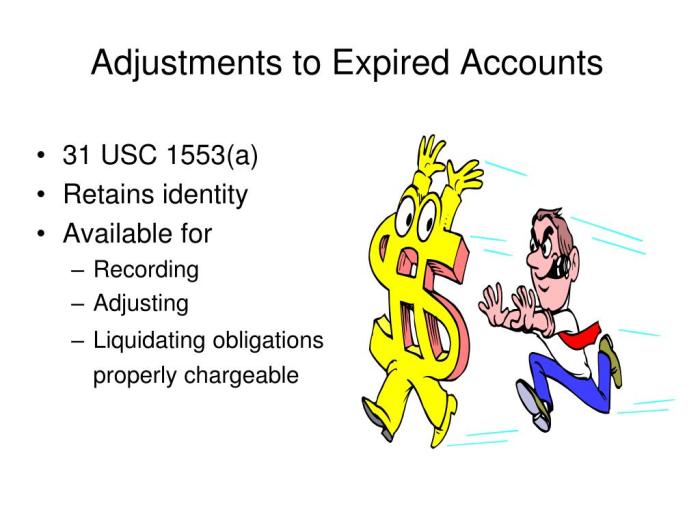Fsd 101 basic fiscal law – Embark on an enlightening journey into the realm of fiscal law with FSD 101, where we unravel the intricacies of this fundamental legal framework that governs financial matters. Join us as we explore its principles, types, enforcement mechanisms, and global perspectives, unraveling the complexities of fiscal law in a clear and engaging manner.
From defining fiscal law and understanding its significance in modern society to delving into the diverse types and their specific purposes, we will provide a comprehensive overview of this essential field. We will examine the guiding principles that shape fiscal laws and the mechanisms in place to ensure their enforcement, ensuring a thorough understanding of the legal framework that governs financial matters.
Definition of Fiscal Law

Fiscal law, a branch of public law, is a set of legal norms and regulations that govern the financial activities of the state and other public entities. These activities include the raising of public revenue through taxation and other means, as well as the allocation and expenditure of public funds.
Examples of fiscal laws include tax laws, budget laws, and public debt laws. These laws establish the legal framework for the collection, distribution, and use of public funds, ensuring the efficient and responsible management of the state’s finances.
Fiscal law plays a crucial role in modern society. It provides a legal basis for the government’s financial operations, ensuring transparency, accountability, and the fair distribution of public resources. By regulating the flow of public funds, fiscal law contributes to economic stability, promotes social welfare, and supports the overall functioning of the state.
Types of Fiscal Laws
Fiscal laws encompass a wide range of legal provisions that govern the imposition, collection, and enforcement of taxes. These laws vary in their purpose and scope, catering to specific aspects of the fiscal system.
Tax Laws, Fsd 101 basic fiscal law
- Impose and define different types of taxes, such as income tax, sales tax, and property tax.
- Specify the tax rates, exemptions, and deductions applicable to various individuals and entities.
- Example: The Internal Revenue Code (IRC) in the United States Artikels the federal tax laws.
Tax Administration Laws
- Establish the procedures and guidelines for tax administration, including tax assessment, collection, and enforcement.
- Example: The Tax Administration Act (TAA) in South Africa governs the administration of tax laws.
li>Define the powers and responsibilities of tax authorities, such as the Internal Revenue Service (IRS).
Customs Laws
- Regulate the import and export of goods, including the imposition of customs duties and tariffs.
- Facilitate international trade by establishing procedures for customs clearance and valuation of goods.
- Example: The Customs Act in India governs the customs laws and procedures.
Excise Laws
- Impose and regulate taxes on the production, sale, or consumption of specific goods, such as alcohol, tobacco, and fuel.
- Aim to generate revenue and control the consumption of certain products.
- Example: The Central Excise Act in India governs the excise laws and procedures.
Principles of Fiscal Law

Fiscal law is guided by fundamental principles that ensure its fairness, efficiency, and effectiveness. These principles shape the design and implementation of fiscal laws, providing a framework for the equitable distribution of tax burdens and the allocation of public resources.
Equity
Equity in fiscal law aims to ensure that individuals and businesses are treated fairly under the tax system. This principle requires that taxpayers with similar economic circumstances pay similar amounts of tax. It also considers the ability to pay, ensuring that tax burdens are not excessively burdensome for low-income earners.
Efficiency
Efficiency in fiscal law focuses on minimizing the economic distortions caused by taxation. Tax laws should be designed to raise revenue without hindering economic growth or discouraging investment. Efficient tax systems strive to balance revenue collection with the promotion of economic activity.
Understanding the fundamentals of fiscal law is essential for anyone looking to gain a comprehensive grasp of financial regulations. FSD 101 Basic Fiscal Law provides a solid foundation in this area. To further enhance your understanding, I highly recommend checking out the APES Unit 9 Study Guide , which offers invaluable insights into environmental issues.
By integrating these resources, you can develop a well-rounded knowledge of both fiscal law and environmental stewardship, which are crucial for responsible decision-making in today’s world.
Simplicity
Simplicity in fiscal law aims to make tax laws clear and easy to understand for taxpayers. Complex tax systems can lead to errors, disputes, and compliance costs. Simple laws facilitate compliance and reduce the burden on taxpayers.
Certainty
Certainty in fiscal law provides taxpayers with clarity and predictability regarding their tax obligations. Tax laws should be stable and avoid frequent changes. Certainty allows taxpayers to plan their financial affairs and make informed decisions.
Transparency
Transparency in fiscal law ensures that the public has access to information about tax laws and their implementation. Transparent tax systems foster trust between taxpayers and tax authorities and promote accountability in the use of public funds.
Enforcement of Fiscal Laws
The enforcement of fiscal laws is crucial to ensure compliance and maintain fiscal discipline. Various mechanisms are employed to enforce these laws, involving government agencies and imposing consequences for violations.
Role of Government Agencies
Government agencies, such as the tax authority, play a central role in enforcing fiscal laws. They are responsible for:
- Monitoring compliance with fiscal regulations.
- Conducting audits and investigations to detect violations.
- Imposing penalties and sanctions on non-compliant individuals or entities.
Consequences of Violating Fiscal Laws
Violating fiscal laws can lead to severe consequences, including:
- Monetary penalties and fines.
- Imprisonment in severe cases.
- Damage to reputation and loss of credibility.
- Legal action, such as lawsuits or asset seizures.
Case Studies

Fiscal laws play a vital role in shaping the economic and social landscape of a nation. By examining real-world applications of these laws, we can assess their effectiveness and identify areas for improvement.
Case Study: Carbon Tax
Carbon tax, a fiscal instrument designed to reduce greenhouse gas emissions, has been implemented in various countries worldwide. By imposing a fee on carbon emissions, these laws aim to incentivize businesses and individuals to adopt more environmentally sustainable practices.
In the European Union, the Emissions Trading System (ETS) has been in operation since 2005. The ETS has successfully reduced carbon emissions in covered sectors by approximately 30% compared to 1990 levels. However, the effectiveness of carbon taxes can vary depending on factors such as the tax rate, the coverage of the tax, and the availability of alternative energy sources.
Case Study: Progressive Income Tax
Progressive income tax, where individuals with higher incomes pay a higher percentage of taxes, is a common fiscal instrument used to redistribute wealth and fund public services.
In the United States, the federal income tax system is progressive, with higher tax rates for individuals with higher incomes. This system has been effective in reducing income inequality and providing funding for essential public services such as healthcare, education, and infrastructure.
Challenges and Limitations
Despite the positive impacts of fiscal laws, their implementation can face challenges and limitations:
- Tax Evasion:Individuals and businesses may find ways to avoid paying taxes, reducing the effectiveness of fiscal laws.
- Complexity:Fiscal laws can be complex and difficult to understand, leading to compliance issues and potential loopholes.
- Political Influence:Fiscal laws can be influenced by political considerations, which may compromise their effectiveness in achieving intended goals.
Recent Developments in Fiscal Law: Fsd 101 Basic Fiscal Law
Fiscal law is constantly evolving to keep pace with changing economic and social conditions. Recent years have seen a number of significant developments in fiscal law, including:
- The increasing use of technology in tax administration
- The globalization of the economy
- The growing importance of environmental protection
These developments have had a major impact on the field of fiscal law, and they are likely to continue to shape the future of this area of law.
Technology and Tax Administration
The use of technology in tax administration has increased dramatically in recent years. This has led to a number of changes in the way that taxes are collected and enforced. For example, many countries now use electronic filing systems, which allow taxpayers to file their returns online.
In addition, tax authorities are increasingly using data analytics to identify potential tax fraud.The use of technology has also made it easier for taxpayers to comply with their tax obligations. For example, many countries now offer online tax calculators that can help taxpayers estimate their tax liability.
In addition, many tax authorities provide online help and support to taxpayers.
Globalization of the Economy
The globalization of the economy has also had a significant impact on fiscal law. As businesses become increasingly globalized, they are faced with a complex array of tax laws and regulations. This can make it difficult for businesses to comply with their tax obligations.In
response to the globalization of the economy, many countries have entered into tax treaties with each other. These treaties are designed to reduce double taxation and to make it easier for businesses to operate across borders.
Environmental Protection
The growing importance of environmental protection has also led to a number of changes in fiscal law. Many countries now offer tax incentives for businesses that invest in green technologies. In addition, many countries have imposed taxes on activities that are harmful to the environment.These
are just a few of the recent developments in fiscal law. As the world continues to change, it is likely that we will see even more changes in this area of law in the years to come.
International Perspectives on Fiscal Law

Fiscal law plays a significant role in shaping the economic and financial landscapes of nations. As countries become increasingly interconnected, understanding the international dimensions of fiscal law becomes crucial. This section examines the comparative analysis of fiscal laws across borders, the influence of international organizations, and the challenges associated with harmonizing fiscal laws.
Comparison of Fiscal Laws in Different Countries
Fiscal laws vary considerably from one country to another, reflecting the unique economic, political, and social circumstances of each nation. Comparative analysis of fiscal laws helps identify best practices, assess the effectiveness of different approaches, and inform policy decisions. Some key areas of comparison include:
- Tax structures: Different countries adopt varying tax structures, such as progressive, regressive, or flat tax systems, which impact the distribution of tax burden.
- Tax rates: Tax rates, including income tax, corporate tax, and value-added tax (VAT), vary significantly across countries, influencing investment decisions and economic growth.
- Tax incentives: Governments offer tax incentives, such as deductions, credits, and exemptions, to encourage specific economic activities or support particular sectors.
- Tax administration: The efficiency and effectiveness of tax administration systems, including tax collection and enforcement mechanisms, impact the overall success of fiscal policies.
Influence of International Organizations on Fiscal Law
International organizations, such as the Organization for Economic Cooperation and Development (OECD), the International Monetary Fund (IMF), and the World Bank, play a significant role in shaping fiscal law. These organizations provide guidelines, best practices, and technical assistance to countries, influencing the development and implementation of fiscal policies.
They also promote international cooperation and coordination on fiscal matters.
Challenges of Harmonizing Fiscal Laws Across Borders
Harmonizing fiscal laws across borders is a complex and challenging task. Differences in economic development, political systems, and legal frameworks pose significant obstacles. Some of the key challenges include:
- Sovereignty concerns: Countries are often reluctant to surrender their fiscal autonomy and cede control over their tax policies to international bodies.
- Complexity of tax systems: Tax systems are complex and intertwined with other aspects of economic policy, making it difficult to achieve harmonization without unintended consequences.
- Political and economic disparities: Differences in economic development and political ideologies make it challenging to find common ground for harmonization.
Questions Often Asked
What is the primary objective of fiscal law?
Fiscal law aims to regulate and control the financial activities of individuals and organizations to ensure equitable distribution of tax burdens, promote economic stability, and finance public services.
How does fiscal law differ from other areas of law?
Fiscal law specifically focuses on financial matters, including taxation, public spending, and the management of public funds, while other areas of law address broader legal concepts and principles.
What are the key principles that guide fiscal law?
Fiscal law is guided by principles such as fairness, efficiency, transparency, and accountability, ensuring that financial regulations are just, effective, and subject to public scrutiny.